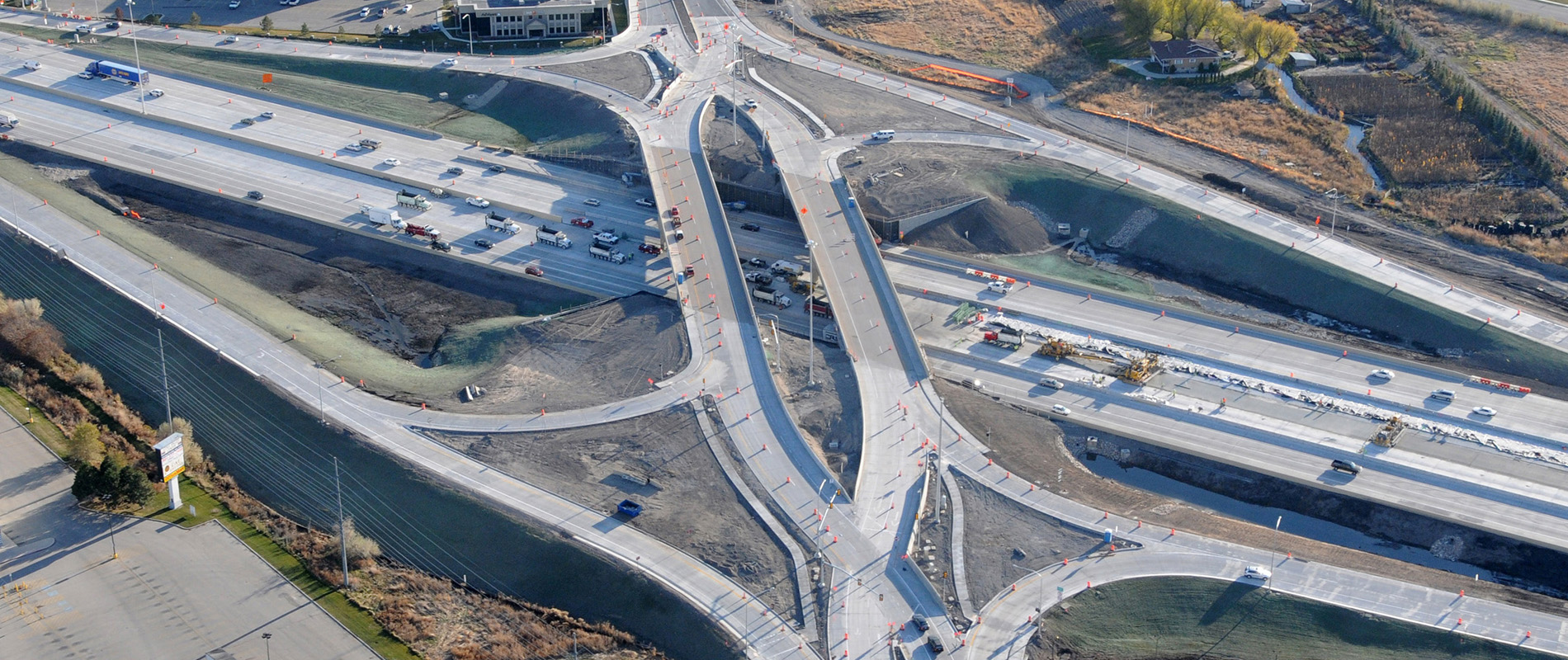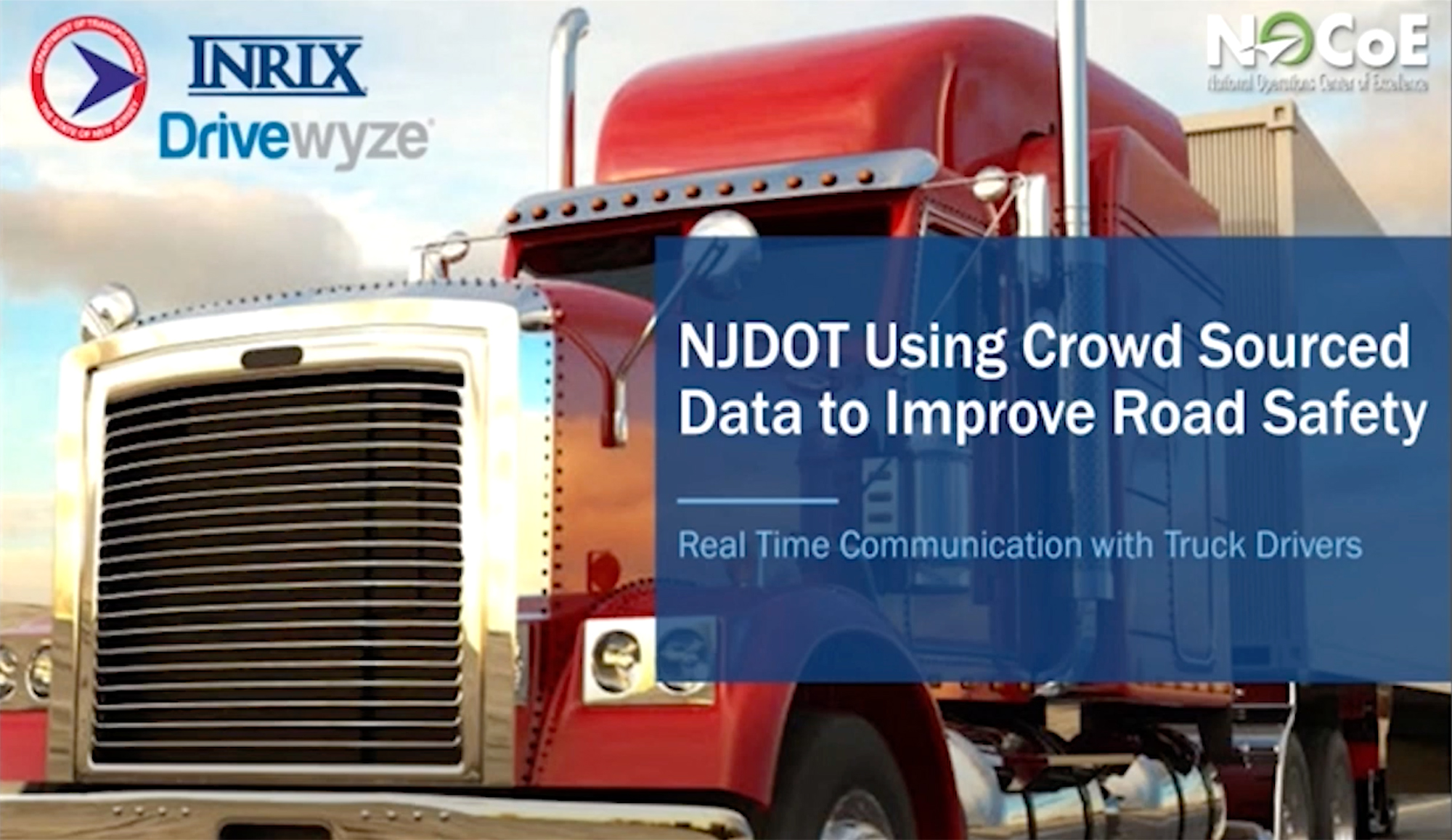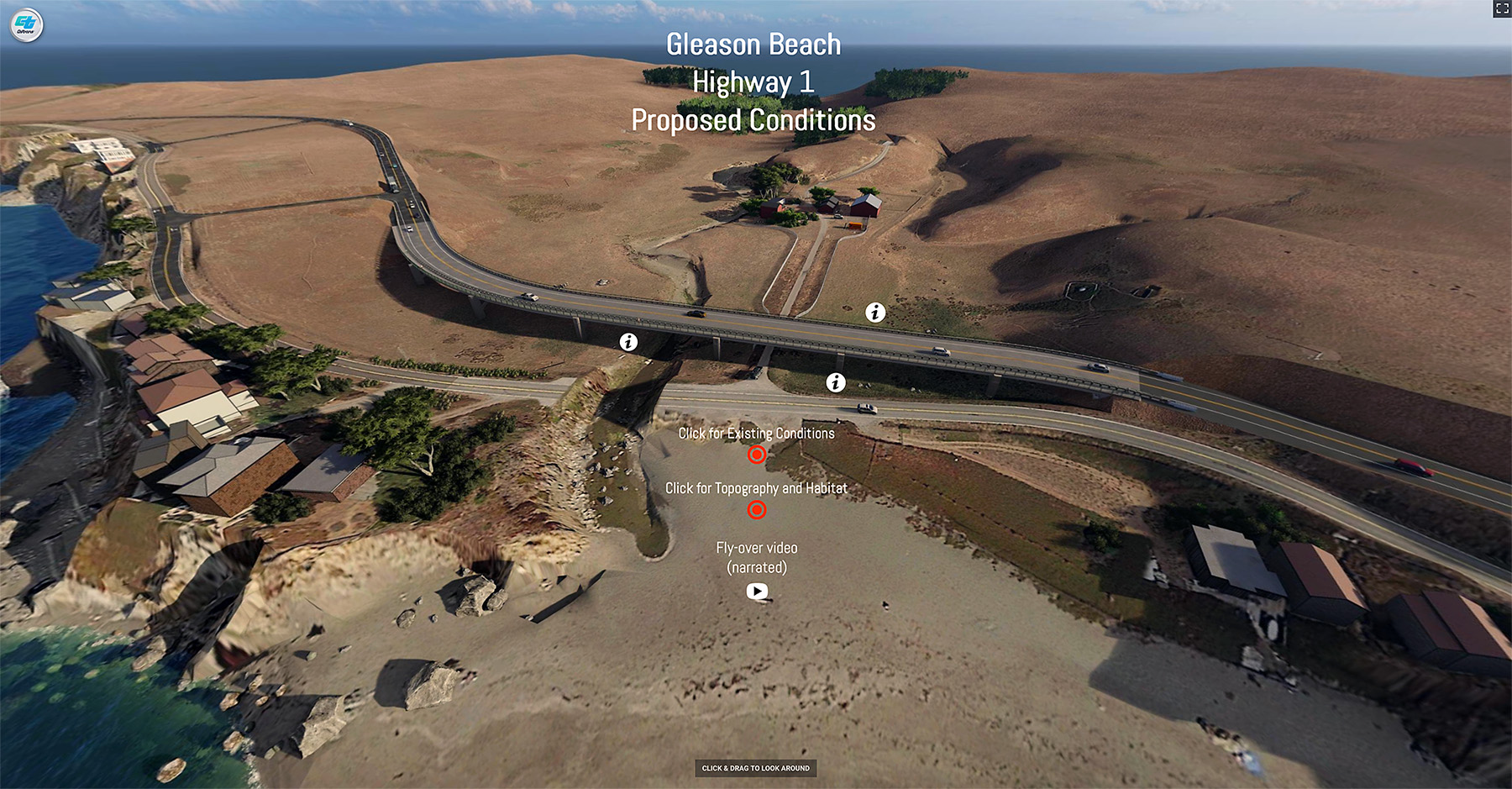
Innovations Help States Deliver Award-Winning Projects
Innovative intersection designs, proven safety countermeasures, community connections, crowdsourcing, and virtual public involvement were features of several of the winning projects for this year’s America’s Transportation Awards.
The 2022 awards recognized State department of transportation (DOT) projects for operations excellence, best use of technology and innovation, and quality of life/community development. The annual competition is sponsored by the American Association of State Highway and Transportation Officials (AASHTO), AAA, and U.S. Chamber of Commerce.
Read more about the following projects and the rest of this year’s winners on the America’s Transportation Awards website.
North Dakota Retrofits a Roundabout
The North Dakota DOT (NDDOT) improved safety and efficiency for motorists while saving money with an innovative roundabout design for a busy intersection. The Beulah Retrofit Roundabout project addressed safety challenges at an intersection that had ranked fourth on the agency’s rural intersection high-crash location list.
In this project video the North Dakota DOT explains how the agency’s roundabout retrofit design saved time and cost.
Credit: North Dakota Department of TransportationNDDOT retrofitted the roundabout on the existing intersection, which saved about $2.5 million on the conventional cost of new construction. According to an NDDOT video about the project, the agency built the roundabout in less than 30 days, significantly less time than would have been needed for a full reconstruction. The savings in time and materials reduced the project’s impact on both the environment and the traveling public. NDDOT reported it has also significantly improved the flow of traffic.
New York and Louisiana Combine Roundabouts with Road Diets
To improve safety in Utica, NY, the New York State DOT implemented a road diet and a roundabout to upgrade outdated roadways and improve all modes of transportation. The agency reported that its multi-modal safety and connections enhancements project improved traffic flows, reduced vehicle speeds, and reduced crashes.
The Louisiana DOTD’s Government Street project addressed a road segment in Baton Rouge with crash rates greater than two times the statewide average. To make the road safer for all users and provide better multimodal options, the agency installed a road diet and replaced a signalized intersection with a roundabout.
West Virginia Increases Safety and Saves Money with an RCUT
West Virginia DOT implemented a restricted crossing U-turn (RCUT) on its Oakwood Drive RCUT project to address traffic congestion and safety issues on Interstate 64 in downtown Charleston. The RCUT design allowed the agency to use existing roadways and right-of-way and limited the infrastructure required for traffic signals, lighting, signage, and pavement markings. The West Virginia DOT reported an estimated savings of $25 million.
Pennsylvania Improves Community Connections
The Pennsylvania DOT reconnected a neighborhood separated by interstate construction in the 1950s while also spurring new economic growth with its I-579 Urban Open Space Cap project in Pittsburgh. The project helped reestablish community connections by bridging the interstate with a park. The park area improved pedestrian and bicycle safety and access to the downtown core. It includes story walls, an outdoor classroom, and performance and green spaces as well as path lighting and improved links to public transit.

Watch an Adventures in Crowdsourcing webinar to learn more about New Jersey DOT’s use of crowdsourced data for commercial vehicles.
Credit: National Operations Center of ExcellenceNew Jersey Improves Safety with Crowdsourcing
The New Jersey DOT is using crowdsourced data to deliver real-time information to commercial vehicle operators to increase highway safety and efficiency. The agency alerts drivers to road conditions through a cell phone app or electronic logging device. This advance warning of sudden slowdowns or congestion gives commercial drivers more opportunity to slow their speed or seek alternate routes, which helps improve safety for all drivers in the area.

The California DOT's 360 Tours website includes project illustrations, videos, and interactive questions to promote public involvement.
Credit: California Department of TransportationCalifornia Enhances Public Engagement
The California DOT (Caltrans) developed a new online tool called 360 Tours for enhancing virtual public involvement on current and upcoming projects. Caltrans consolidated software technologies into an interactive, web-based interface that delivers complex project information in a centralized 3D model. Visitors to the website can explore existing conditions and see conceptual solutions. For its State Route 37 planning and environmental linkages project, 360 Tours offered Caltrans stakeholders an opportunity to view the effects of sea-level rise. The agency has also used 360 Tours to facilitate project meetings and explain safety-related items.
—MORE INFORMATION
Contact Maggie Kasperski of AASHTO for information on America’s Transportation Awards.
Notice: The U.S. Government does not endorse products or manufacturers. Trademarks or manufacturers’ names appear in this article only because they are considered essential to the objective of the document.
Recommended Citation: U.S. Department of Transportation, Federal Highway Administration - Washington, DC (2022) Innovator Newsletter, November/December 2022, Volume 16 (93). https://doi.org/10.21949/1521886
- Cover
- ConnectU2Jobs Graduate Shares Program Experience to Inspire Others
- Hawaii DOT Gets Fast and Furious Installing Raised Crosswalks
- States Report Success with Highly Modified Asphalt
- Innovations Help States Deliver Award-Winning Projects
- States Innovate
- Crash Responder Safety Week
- About Innovator



